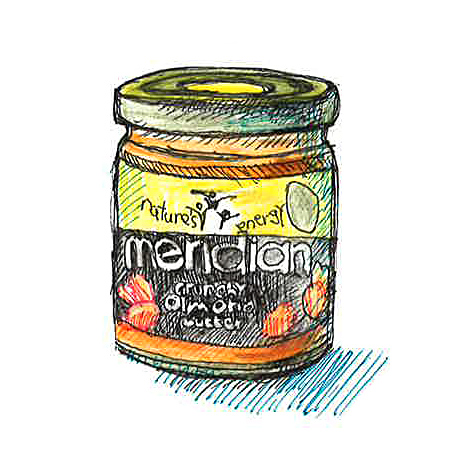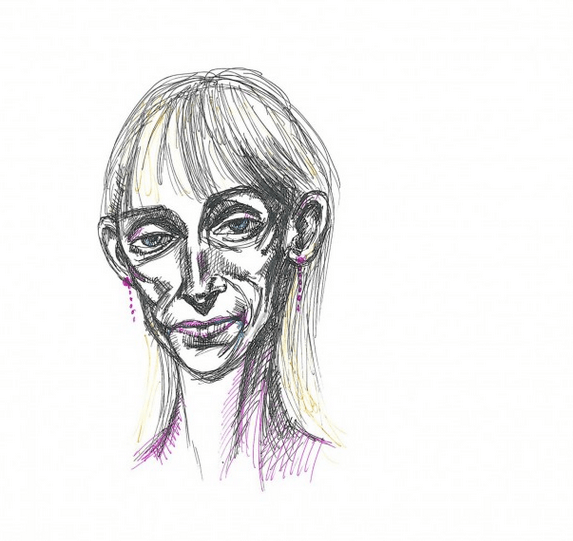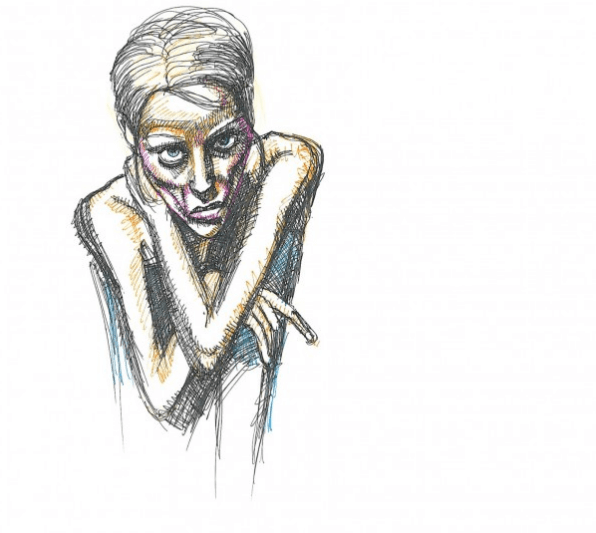About Time: We Banned FitspoBy Merri Leston
Fitspo, pictures and messages encouraging people to improve physical appearance and fitness, is everywhere. It seems harmless enough, all positive encouragement and motivation. But behind the Instagram pictures is a dark, dangerous underbelly that can lead to reduced self-worth. Having battled with an eating disorder, the only thing fitspo inspired in me was a relapse.
This well-meaning hashtag conceals the same body shaming of its regulated #thinspiration cousin in my books – add to that a thinly (no pun intended) disguised dose of advertising and female objectification and you may as well follow #femaleoppression and #productplacement as avidly. Here’s some common messages of the trend that I think are damaging, rather than improving, women’s confidence:
The Health Halo
Searching ‘thinspo’ into photo sharing sites such as Instagram, Tumblr and Pinterest should draw a blank thanks to recent regulation against pins promoting eating disorders or self-harm. However, despite its ‘health halo’, replacing thin with fit calls up messages that are just as dangerous.

As in the thinspo community, fitspired success comes from dedication: a regimented diet and often from seeing the pounds come off. The very same images are plastered on ‘anorexia recovery sites’; rather than fostering self-esteem, they further entrench the idea that happiness can only come from controlling physical appearance. In the case of thinspo vs. fitspo, there’s little difference other than the words ‘beast mode’ being bandied about a bit – as Charlotte Hilton Anderson from The Great Fitness Experiment so rightly commented, ‘Fitspo is just thinspo in a sports bra’.
Fitness versus Fuckableness
Let’s cut the crap. Getting sweaty is not empowering. Being able to wear a crop top to the gym does not make me well up with pride at the cross trainer. Women everywhere can pretend that mottos such as ‘strong is the new sexy’ herald a new age of body acceptance where health, rather than emaciation, is beauty.
But they don’t – unless you consider the move from evaluating self worth on the size label of skinny jeans to the size label of yoga pants a step forward. Just because these models have had six packs drawn on does not give them Pankhurst status. Where are the Olympic athletes built like brick houses in all this? They could snap these ‘fitness’ models like twigs. But that’s the point: real strength isn’t always pretty. Strength is sexy until it’s emasculating. Strength is sexy until it’s not fuckable.
‘Do it for the “Holy shit you got hot!”’
Why does my entire life have to revolve around how good I’ll look naked? Having a six pack and a pert ass is not going to land me a job (God, I hope not). If I spend my day lifting books rather than weights, does that make me less desirable? Should I be spending more time in the gym than the library in order to make you like me? If you’ve answered yes to these then I hope for your sake you are fit. Because I will chase you.
Pushing it Too Far
Let’s be honest: if everyone agreed that ‘crawling is acceptable, puking is acceptable, tears are acceptable, pain is acceptable, quitting is unacceptable’, I’m pretty sure gym membership would be a hard-sell – though maybe you’d get a package deal that included a bucket.
The human body has limits; pain warns us when we push these too far and risk serious damage. Training longer, harder and with more heavy things attached to you does not make you Hercules. The amount of injuries you clock up does not make you more of a fitness devotee (otherwise A and E would have a far bigger lad culture than it does at the moment).
The Advertising Warning
‘You are entirely up to you. Make your body. Make your life. Make yourself.’
What’s that? Make my body? I have a body already thanks, Nike. Are you seriously telling me that it’s only qualified if it’s got a decent thigh gap? The fact that eating disorders and other mental illnesses are so prevalent amongst many competitive athletes prove that obtaining this new body image goal does not give you the promised ticket to happiness.
Let’s acknowledge these images for what they really are: advertisements selling the promise of sex to get more booties in Spanx and more Spanxed booties in gyms. Fashion and the fitness industry have always been mutual benefactors: this ‘movement’ is not the middle finger to the fashion world that it claims to be, it’s just a different hand to feed it.
To conclude (thank God, I’m working up a sweat here – it can’t be good for me) I want to make it clear that I am not suggesting we treat fitspiration with the same level of boycott as its thinspo counterpart – but I would encourage users to promote ‘healthspo’ instead. I’m not arguing that fitspiration can’t be helpful – anything that promotes physical activity and healthy eating habits should be encouraged. But as my own experience shows, this hashtag has the potential to bring up the same feelings of body loathing and obsessiveness that can under ‘pin’ an eating disorder. Left unregulated, I worry that women will never truly be free to evaluate their worth without the mirror and men without the muscle.
Sketches by Suzi Malin












